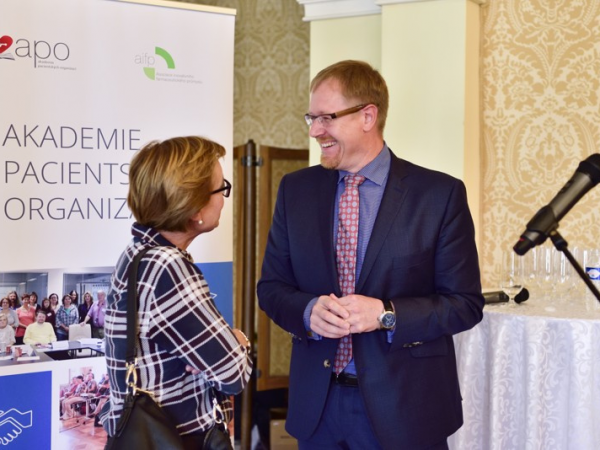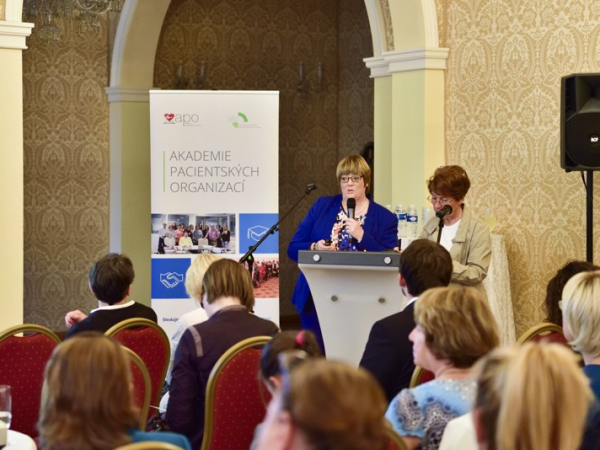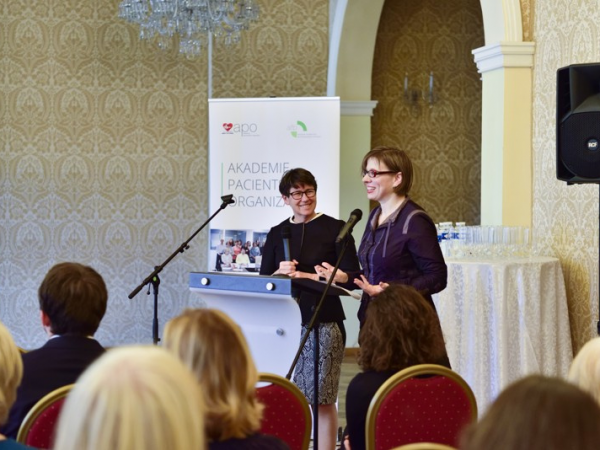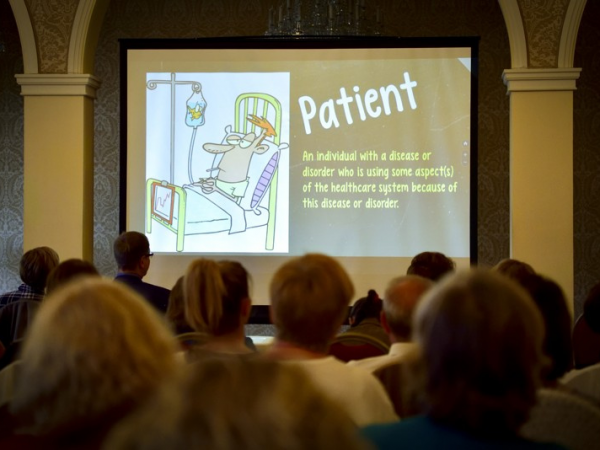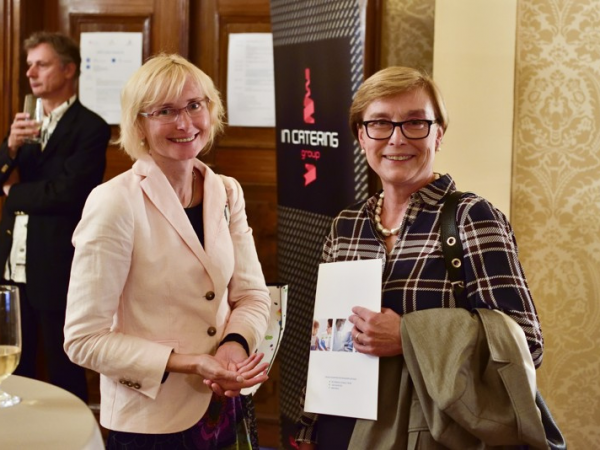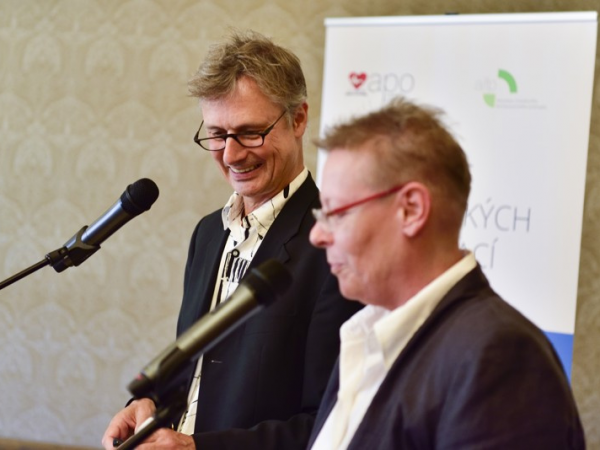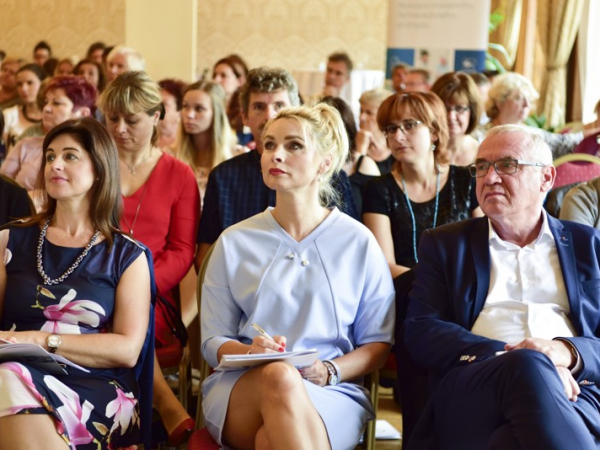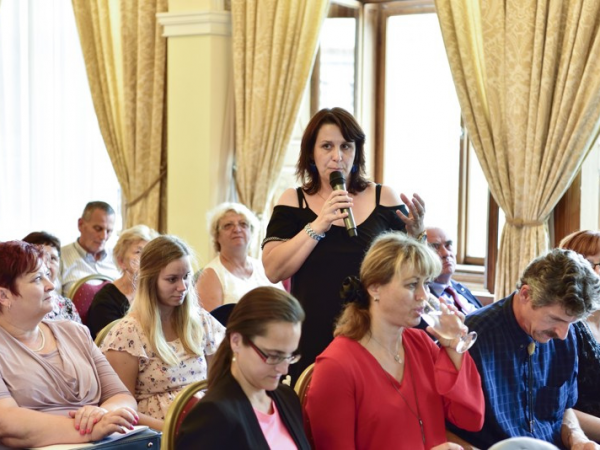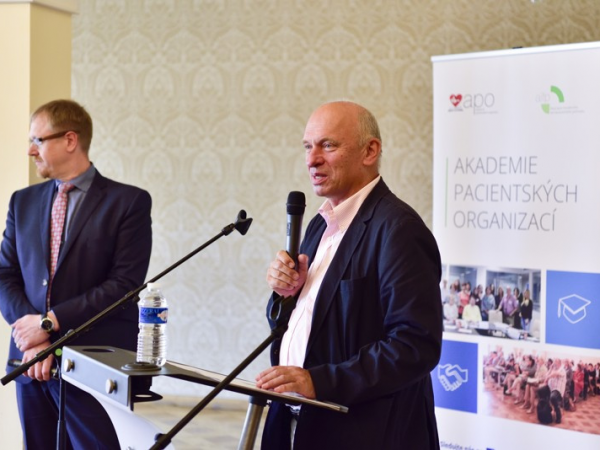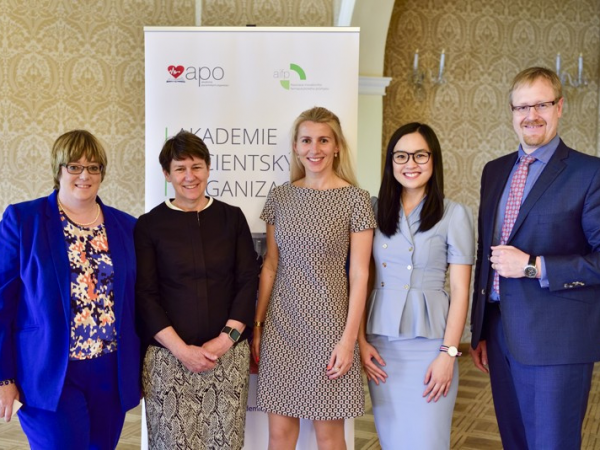APO Summer School 2017
Third annual APO summer school conference was held on September 6th 2017 in Prague.
Over 100 participants attended a whole day conference with the main topics:
- HTA Process
- The role of the umbrella organisations within the process
Two international experts on the HTA process accepted the invitation to the conference:
Mrs. Jacqueline Street, a Senior Research Fellow at the University of Adelaide, South Australia, who mentioned three possible approaches on how to involve patients in the process, namely:
- Passive role – The patient is perceived as a consumer, the emphasis is put on his satisfaction
- Active role – The patient is viewed as an expert with a voice that can influence HTA process. Mrs. Street informed that Australia is progressively approaching this model.
- Equal role – an equal partnership that will allow patient to directly co-decide on the outcomes of HTA process. Todays this model is nowhere to be seen.
Mrs. Street emphasized the importance of involving patients in the process from different perspectives where patients are the source of information, facts and evidence.
The second invited expert on HTA process was Mrs. Heidi Livingstone, Public Involvement Adviser at National Institute for Health and Care Excellence (NICE), who is responsible for patient and public involvement in the Health Technology Assessment work at NICE, including Technology Appraisals, Highly Specialised Technologies, Scientific Advice with experience of Interventional Procedures, Medical Technologies and Diagnostics.
According to Mrs. Livingstone there are several reasons why to involve patients:
- Patients who are involved in the question of accessibility of the medicines
- Patients best understand the importance of benefits of the treatment and also understand the risks associated with the treatment. Patients are often experts in their diseases.
- Patients play roles in many stages of development and research.
Mrs. Jana Skoupá, an expert on the HTA process in the Czech Republic, stressed that all stakeholders of healthcare system bear an opportunity to influence the processes, except patients, who are most affected. However, Mrs. Skoupá pointed out that the HTA will always be the result of the collective decision making process within all the stakeholders.
The Final part was dedicated to the Best Practice. Mr. Christopher Kranich, the representative of the German patient’s umbrella organization, who mentioned the fact that there is no big umbrella organization in Germany, but rather the existence of several smaller umbrella organizations. In order for a patient organisation to engage in HTA process, it must meet several conditions, namely to consistently promoting of patient’s interests, to be democratic, to represent patients at the federal level and work at that level for at least 3 years, to be transparent and to be independent. German patient’s organizations have only a consultative voice in the HTA process in Germany.

Photographs from the left side:
1. Dr. Jana Skoupá, Executive Director of Czechta Institute and Mr. Jakub Dvořáček, Executive Director of AIFP
2. Mrs. Heidi Livingstone, Public Involvement Adviser at National Institute for Health and Care Excellence (NICE)
3. Dr. Jacqueline Street, a Senior Research Fellow at the University of Adelaide, South Australia
4.
5. Mr. Christopher Kranich, the representative of the German umbrella organization (Bundesarbeitsgemeinschaft der Patientenstellen; BAGP), Dr. Jan Skoupá, Executive Director of Czechta Institute and Mrs. Kateřina Konečná MEP (MEP interest group on Patient Access to Healthcare)
6. Mr. Christopher Kranich, the representative of the German umbrella organization (Bundesarbeitsgemeinschaft der Patientenstellen; BAGP),
7. Mrs. Irena Storová, Deputy Director of State Institute for Drug Control (SÚKL), Mrs. Lenka Teska Arnoštová, Ph.D., the first Deputy of MoH and Mr. Pavel Vepřek, Chairman of Občan z.s.
8. Jitka Reineltová, Chairwoman of patient organisation Parent Project, z.s.
9. Mr. Jakub Dvořáček, Executive Director of AIFP and prof. Štepán Svačina, chairman of the Czech Medical Society Jan Evangelista Purkyně.
10. Mrs. Heidi Livingstone, Public Involvement Adviser at National Institute for Health and Care Excellence (NICE), Dr. Jacqueline Street, a Senior Research Fellow at the University of Adelaide, South Australia, Mrs. Zuzana Komárková, APO project manager, Mrs. Loan Nguyen, AIFP and Mr. Jakub Dvořáček, Executive Director of AIFP



